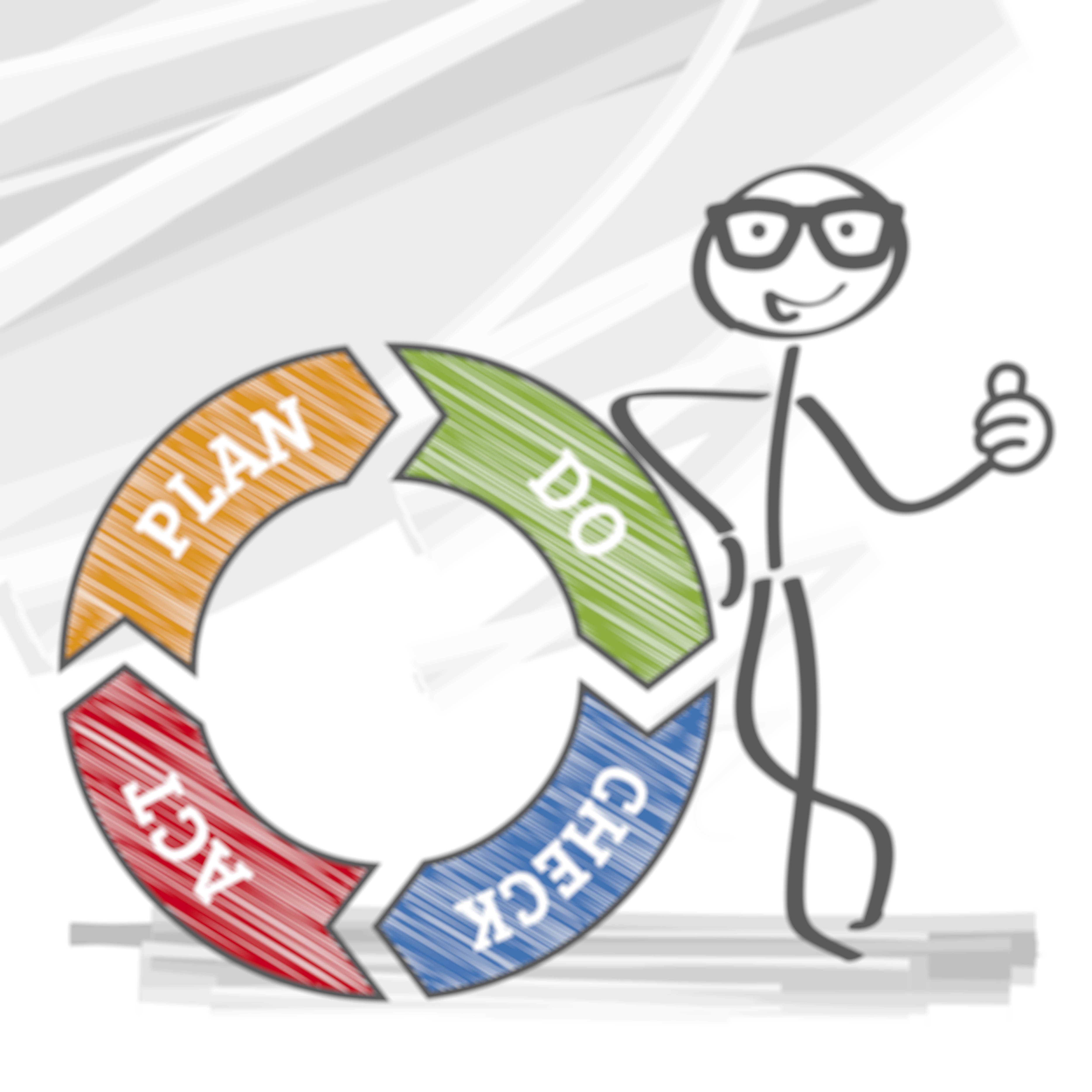
On 30 September 2005, the Higher Education Academic Evaluation and Quality Improvement Commission (YÖDEK) was established by the Interuniversity Committee in accordance with the Higher Education Council's Academic Evaluation and Quality Improvement Regulation. The period of Strategic Planning has started in Turkish universities with the law No: 5018. In 2015, Higher Education Quality Assurance Regulation was published and Higher Education Quality Board was established. In line with these changes and in accordance with the transition to a quality-based management approach in the Turkish Higher Education system Istanbul Gelişim University started studies too to make changes with organization management and process designs in order to determine the policies. With its Strategic Plan, İstanbul Gelişim University has determined the point it has come until now and where it wants to be in future. As a young university, IGU announce its mission, vision, goals; and values that is supported by quality policy clearly to all stakeholders. In order to improve itself according to these basic values, objectives and strategies, it strives to systematically create and continuously improve an effective quality management mechanism and culture.
Within the scope of the quality management system studies, many perfomance measurable indicators are used such as information and data base of internal and external evaluations, stakeholder views, committee and board activities, accreditation activities.
Our university startegic objectives are determined by the university mission strategic plan and quality directive. It has identified sub-objectives related to the determined areas and made activities to achieve the relevant objectives. Indicators for monitoring and confirmation of achievement of goals and objectives have been identified.
In continuous improvement, the planning and management approach of the university is supported by the, ”Plan, Apply, Check and Take precaution” cycle. These principles are applied in a cyclical process consisting of:
1.Planning: Set a target. Whats the result of each change? Work on it. Planning based on a new strategic direction or internal and external evaluation, re-planning for an improvement in existing works,
2.Application: Implement, record, report. Apply the plan and follow-up the results according to previously agreed criteria,
3. Check: Has the expected change occurred? What are the effects of change? Measuring performance and analyzing by comparing with targets,
4. Take Precaution: Examine the difference between the target and actual results. To make necessary improvements according to the results of the evaluation and to protect the areas which are working well during the application.

This cycle governance system is applied in quality assurance system management, education, research, social contribution and internationalization. According to this process internal audit is planned. Internal audit is carried out at least once a year. In Istanbul Gelişim University, internal audits are planned at certain intervals in order to verify the quality management system's compliance with the quality management system requirements and planned arrangements, to monitor the effectiveness of the quality management system and to evaluate its activities in order to ensure its continuity.
The internal audit procedure foreseen areas for improvement of the organization as a result of internal evaluation. Practices related to open areas were followed and internal audit report was prepared each year. The related report is an indicator of the self-improvement system of the University and also a guide for the external evaluation of the institution.
Our Organization; In addition of the quality management processes constituted in parallel with the mission and target, it has various internal and external evaluation practices on the basis of units.
According to the management review meeting "Strategic Management and Review Procedure", Internal audit results and quality get discussed before external audit. Decisions are taken with justified and finalized time targets.
External audit is performed by independent auditors. All discrepancies got brought up to the agenda on the management review meeting (YGG) by external auditors. As a continuous quality improvement and assurance approach our university is open to domestic and international audits as (quality auditing, accreditation, university rankings, administrative and financial audits of YÖK) audits.
Improvement plans are made in accordance with the internal and external audit results of the survey analysis which based on Internal Evaluation Procedure in our administrative and academic processes as (student satisfaction survey, open-ended student satisfaction survey, student course and instructor evaluation) surveys. Within this framework, process improvement models are updated, new approaches and parameters to measure and improve the process are added to the system. Many different healing methods applied in our processes (5 cause method, PDCA, root cause analysis, swot analysis etc.) in order to reach the goals of our university. As a result of the analyzes, all the areas that need to be improved and the areas that create dissatisfaction, which reduce the level of corporate belonging and which prevent the elements from giving better services, are determined. These areas may be areas that threaten the success or continuity of the University. At the same time, our University while its preparing its plans and revising its processes it takes into consideration its strengths and opportunities in the changing and developing World. In order to consolidate and institutionalize the strenghts and be part of the organizational culture, many various measures are taken such as designing performance and reward systems.
Istanbul Gelişim University continued the improvement process by determining the strong development points. Student quality; quality of academic staff; quality of the university environment; Improving the quality of university management has been identified as four priority strategic improvement and monitoring areas. In order to reach the targets in these four areas, the following policy decisions were taken and some of them were implemented in the fields of research, education, personnel, space and management processes.
1- Encourage and support scientific research; to accept research as one of the most important criteria of performance-based management;
2- To document the quality of education with international accreditation processes;
3- To increase the number and quality of staff;
4- Continuous improvement of management and information systems
5- Improve physical space; social space; psychological space and digital space
The applications made for these goals are:
1. Technology Transfer Office (TTO) and Scientific Research Projects Implementation and Research Center (IGUBAPMER) were established, research and development activities were initiated in order to improve research and development priority. It encourages writing projects and research proposals for non-university resources; collects and follows up faculty research writing objectives of employee. In order to encourage research many changes were made in the award and incentive regulations, it was decided to allocate 50% of the research funds to the researchers for the purpose of writing a research project; It is planned that researches will be highly encouraged with the performance based fee system. Corporate support is provided to our academic staff in order to support research activities, language, translation, project writing, patent support, budgeting issues.
2. German, British and US accreditation organizations were contacted in order to get accreditation for 87 programs to improve the quality of education. The faculty members participated in the workshops of consultancy and training services from foreign experts on curriculum, module, designing and developing course content, identifying and writing learning targets, workload and credit calculation, connecting the education system with quality assurance. As of March 2017 and with the accreditation of 48 program, it has turkey's most accredited university. Extensive discounts and scholarships are provided to national and international students.
3. The number and quality of academic and administrative staff is rapidly increased. Foreign language knowledge, publications, research background, in-service trainings, abroad experience, management and work experience are the qualities that are encouraged by various incentive mechanisms.
4. Continuous improvement activities are carried out on organization, policies and targets, personnel, information systems, documentation and reporting processes, monitoring and improvement mechanisms to ensure quality-centered improvement of administrative organization and processes. good-humour
5. In order to meet the need of space for growing number of students and staff with 280 thousand m2 purchased area, the closed area per student is close to 50 m2. Social space with constantly supported artistic and cultural activities; good-humour, professionalism, academic and scientific freedom, respect for personal differences with human rights and freedoms, psychological space with principles of belief in the rule of law; The digital space quality is constantly being improved by the opportunities, environment and activities of our university in digital environment which is constantly developed by the empowering self-governing.
Istanbul Gelişim University uses valid and reliable tools and mechanisms (satisfaction surveys, student course evaluation surveys, consultancy services, student council evaluations, external stakeholder opinion suggestions and demands etc.) in order to evaluate its activities within the quality assurance system and determine its clear aspects, examines the results obtained and carries out improvement activities within the principle of transparency.
One of the policies considered within the scope of quality assurance and that contributes to the internalization of quality processes is award system. The award management system carried out in our university is an important tool in the quality assurance system. These award processes for academic and students are carried out with the ”Award Directive” and with the academic publication and incentive directive. Academic publications, citations, research projects, patents, competition awards, foreign language knowledge are among the directly supported financial staff activities. Foreign language learning is amongst the student support that receives international education and research, participation in artistic sporting or scientific competitions, and awards. Important tuition fees discounts are applied to students coming from abroad to promote internationalization. Istanbul Gelişim University aims to evaluate its research and studies, success and services in the fields of science, culture and art sports, to approve its superior qualities to the public and to encourage generations. Science awards, art awards, sports awards, the lecturer of the year award, master's thesis of the year award, doctorate of the year, proficiency in art award, volunteers of Istanbul Gelişim University are given awards by the rectorate or president of the board of overseers.
Our university, YÖK, ÜAK Presidency, International Accreditation Organizations, General Directorate of Civil Aviation, Member or central administration, which is subject to legislation, international organizations, non-governmental organizations, professional organizations and public opinion administrative, financial, social, cultural, disabled rights, occupational standards, occupational health and safety, information privacy and security, academic and research ethics, officially controlled mainly in international rankings and in various fields. External evaluation is a process that we see as an opportunity for the development of our university because it gives a new perspective to all aspects of our processes. Every year, various improvement activities are carried out in the light of improvement priorities determined by external evaluation results. Physical space, service processes, personnel quality, education and research activities are just some of our improvement fields. In our processes, the application related to the improvement is revised to get better service.
Strict plans do more harm than benefit to organizations. One of our principle of quality management system is flexibility.
Our objectives, the operation of our quality system and our applications; It can be changed according to the science threats and opportunities that will arise in the world, changes in the conditions of our country, the feedback provided by the internal and external stakeholders, and the results of the internal and external evaluation processes.


